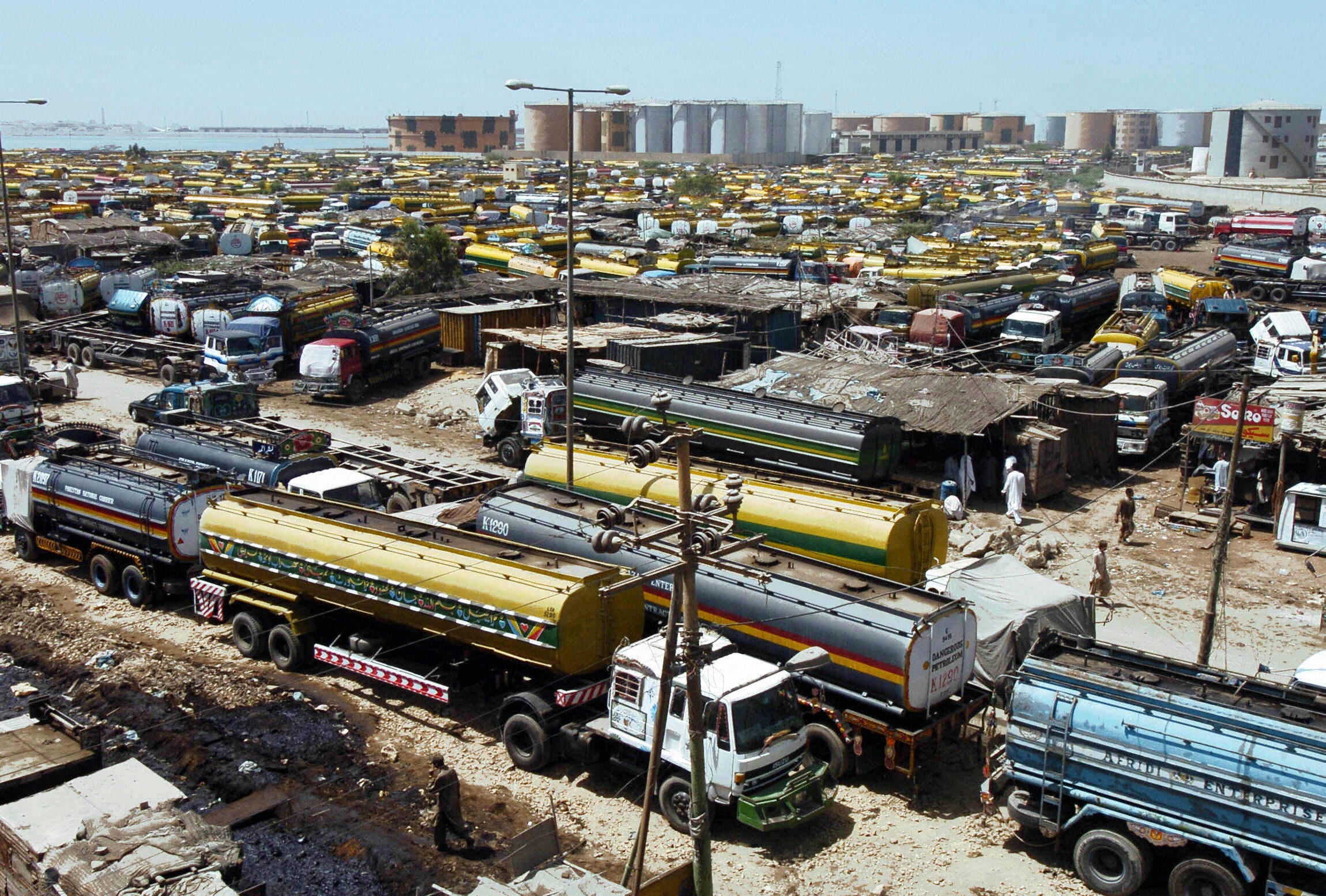Pakistan places first order for discounted Russian oil, joining major buyers India and China

Your support helps us to tell the story
From reproductive rights to climate change to Big Tech, The Independent is on the ground when the story is developing. Whether it's investigating the financials of Elon Musk's pro-Trump PAC or producing our latest documentary, 'The A Word', which shines a light on the American women fighting for reproductive rights, we know how important it is to parse out the facts from the messaging.
At such a critical moment in US history, we need reporters on the ground. Your donation allows us to keep sending journalists to speak to both sides of the story.
The Independent is trusted by Americans across the entire political spectrum. And unlike many other quality news outlets, we choose not to lock Americans out of our reporting and analysis with paywalls. We believe quality journalism should be available to everyone, paid for by those who can afford it.
Your support makes all the difference.Pakistan has become the latest Asian country to import Russia’s discounted crude oil, joining India and China which are importing heavily from Moscow following its invasion of Ukraine.
Petroleum minister of Pakistan Musadik Malik told Reuters that Islamabad has placed its first order for crude oil after striking a new deal with Russia and the cargo will dock at Karachi port in May.
Under the new deal struck with Moscow, the South Asian nation’s imports are expected to reach 100,000 barrels per day if the first transaction goes smoothly, Mr Malik said on Wednesday.
"Our orders are in, we have placed that already," Mr Malik said.
Russia scored a new oil trade partner as it pivoted to Asia, Africa and other Latin American countries redirecting its barrels from traditional buyers in Europe after the West imposed sanctions to ban exports to cut the Kremlin’s profits to sustain the invasion of Ukraine.
It comes after months-long negotiations following Russian energy minister Nikolay Shulginov’s visit to Pakistan earlier this year to make in-roads Islamabad.
The Independent reported last week that India and China have become the largest buyers of Russian oil since the invasion, buying 1.9 million barrels of oil per day each, together accounting for 90 per cent of oil exports.
It would also mark a crucial beginning to Pakistani and Russia’s bilateral cooperation in the energy trade, widening its trade partners from long-established suppliers like Saudi Arabia and others in Gulf states.
The idea of importing cheap Russian crude has long remained on Pakistani leaders’ wishlist and has cross-party support in Pakistan.
Ousted prime minister and Pakistan Tehreek-e-Insaf (PTI) party chair Imran Khan told The Independent in an interview last month that “we wanted to buy discounted oil from Russia, just like India did”.
“We can’t afford to be partisan, we should be neutral,” when it comes to the Ukraine conflict, Mr Khan said at the time. “Our main concern is our own people. Whatever is good for them should be my priority.”
Mr Malik declined to comment on the commercial aspect of the deal.
However, the discounted crude offers to Pakistan would be a huge relief for the cash-strapped nation which is in the midst of an economic crisis with the balance of payments crisis and critically low foreign exchange reserves.
Mr Malik said that Pakistan Refinery Limited will initially refine the Russian crude and others will be included in the later stages following a trial run.
According to data from analytics firm Kpler, Islamabad imported 154,000 barrels per day of oil in 2022, remaining relatively static from the previous year while it fulfilled most of its oil requirement from Saudi Arabia followed by the United Arab Emirates which were the top exporters of Asia before the war.
The latest deal with supplies rising to 100,000 barrels per day would mean a potentially big drop in sales of Middle East suppliers to Pakistan, which is likely to irk the partners in the fellow Muslim nations.



Join our commenting forum
Join thought-provoking conversations, follow other Independent readers and see their replies
Comments